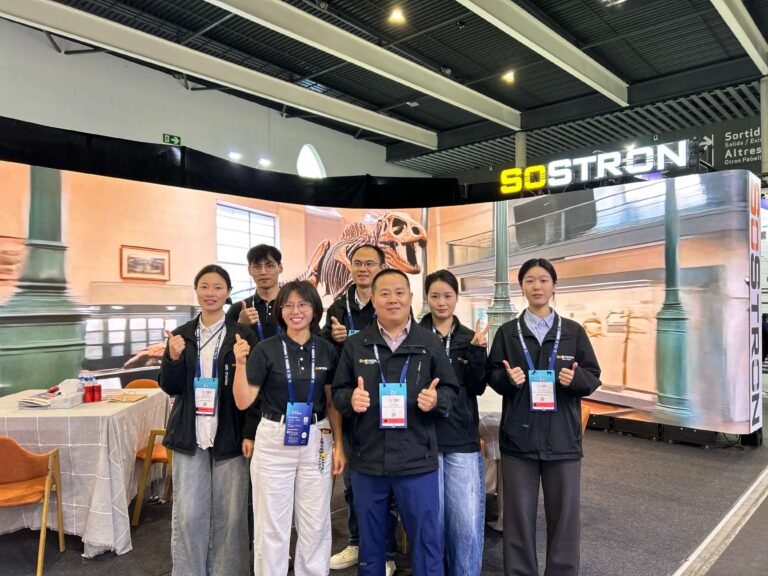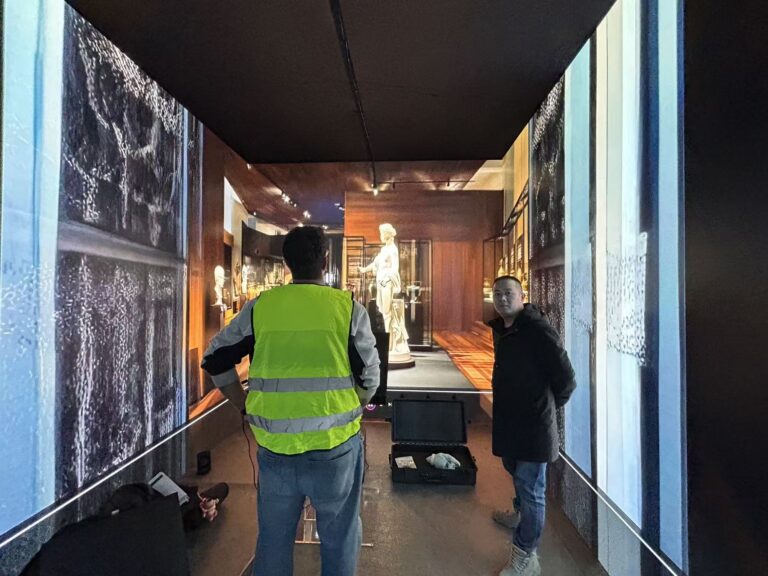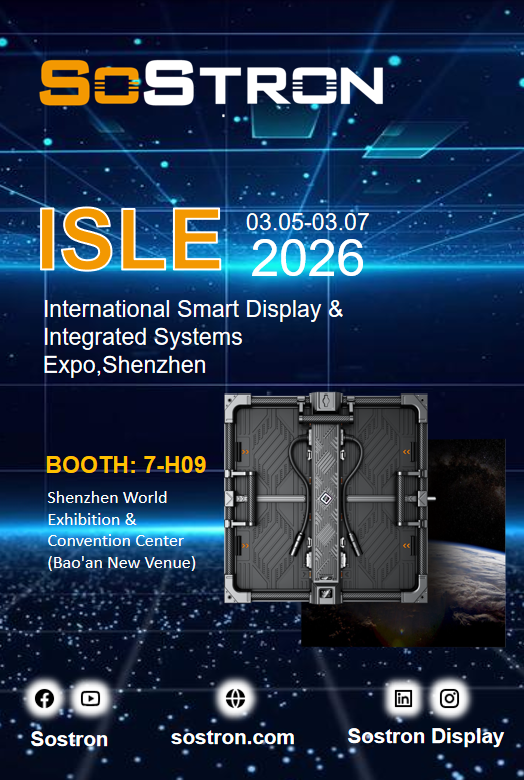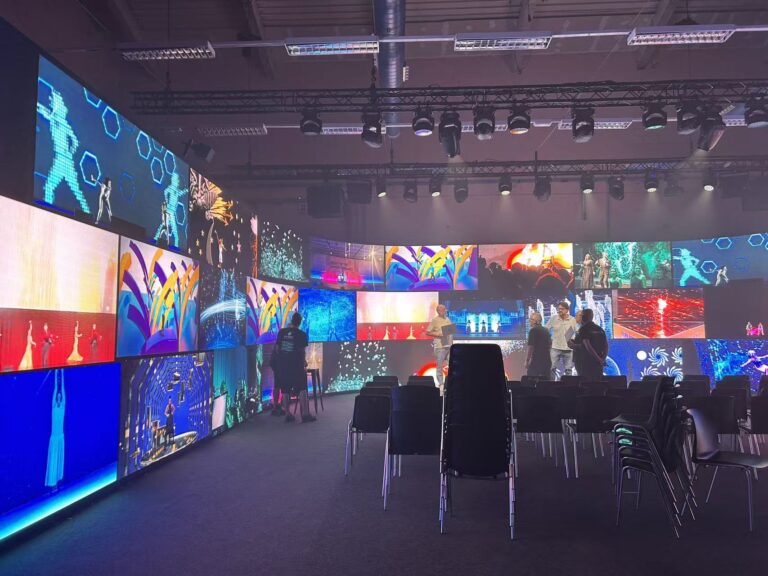Table of Contents
ToggleTable of contents
What is XR?
What is the difference between XR and virtual production?
What is an XR wall? XR virtual technology combined with LED screen
What is the difference between XR LED screen and ordinary LED screen?
What are the advantages of XR LED screens?
Our XR LED screen products
With the rapid development of technology, XR (Extended Reality) virtual shooting technology has become a new star in the film, television, advertising and entertainment industries. In XR virtual shooting, LED display screens play a vital role, providing photographers and directors with an immersive, WYSIWYG shooting environment.
What is XR?
XR technology can be combined with LED displays to provide a more immersive experience. LED display screens can be used as display devices for XR technology to display virtual content and augmented reality content. The high resolution and high brightness of the LED display can provide clearer and more realistic images, thus improving the user experience. In addition, LED displays can also be used to simulate real-world physical environments, such as simulating indoor environments or outdoor environments, thereby enhancing the user’s sense of immersion.
What is the difference between XR and virtual production?
XR and virtual production are both technologies related to virtual reality and augmented reality, but their application scenarios and purposes are different.
XR technology is a technology that integrates various technologies such as virtual reality, augmented reality, and mixed reality. It can be applied to many fields such as gaming, education, medical care, and industry, aiming to provide an immersive experience.
Virtual production is a technology that uses virtual reality and augmented reality technology to produce virtual content. It can be used in various media forms such as movies, TV, and games, aiming to provide more realistic and realistic virtual content.
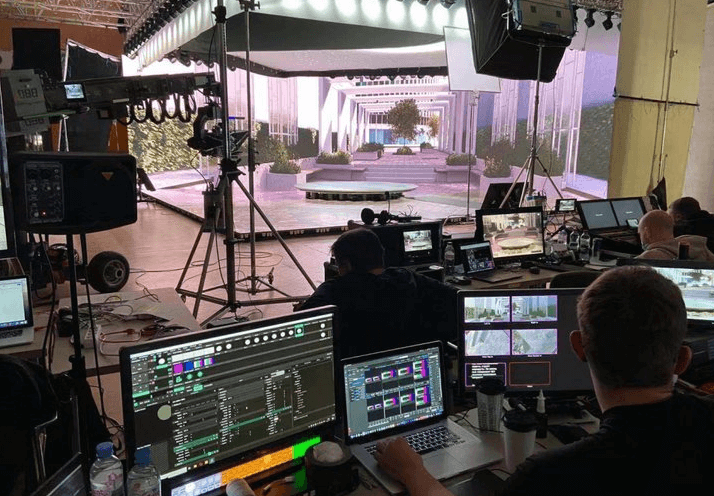
What is an XR wall?
An XR wall is a device that uses XR technology to simulate real-world physical environments. It usually consists of multiple LED displays that can simulate different physical environments such as walls, floors, and ceilings. Users can enter the XR environment by wearing devices such as head-mounted displays and handles to interact with virtual content. XR walls can be used in gaming, education, medical, industry and other fields, aiming to provide an immersive experience.
XR virtual technology combines with LED screens to achieve realistic virtual scenes and shooting effects using LED displays and XR shooting technology. By fusing background images with virtual elements, large-scale virtual scenes can be created in a smaller space. At the same time, real-time shooting and adjustment can be performed, which greatly improves production efficiency and cost control, and also provides a good solution for advertising, movies, Industries such as games have brought new space for creativity and development.
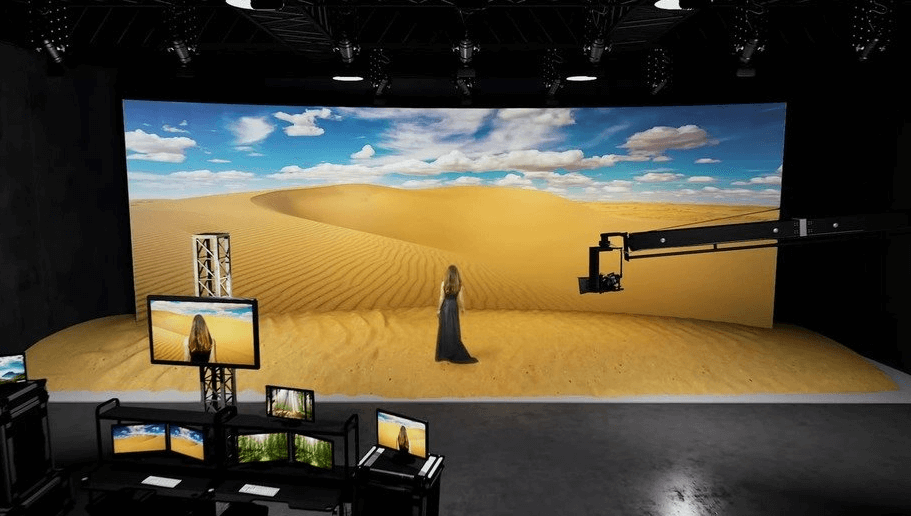
What is the difference between XR LED screen and ordinary LED screen?
There are some key differences between XR LED screens (Extended Reality LED screens) and ordinary LED screens, which are usually related to their design, functionality and applications.
Application areas:
XR LED screen: Mainly used for extended reality (XR) applications such as virtual reality (VR) and augmented reality (AR) experiences to provide a more immersive, interactive and three-dimensional environment. These screens are often used for XR applications such as games, simulation training, virtual meetings, etc.
Ordinary LED screens: mainly used to display text, images, videos and other standard content, such as advertisements, information displays, conference room screens, etc.
Display technology:
XR LED screens: Usually use more advanced display technology, such as OLED (organic light-emitting diode) or MicroLED, to provide higher resolution, more vivid colors and faster response time to meet the requirements of XR applications.
Ordinary LED screens: Different LED technologies can be used, but usually LCD (liquid crystal display) or ordinary LED displays are the main ones, suitable for standard content display. Do you want to understand the technological evolution of LED screens?
Resolution and pixel density:
XR LED screens: usually have higher resolution and pixel density to achieve higher image quality and visual details to meet the clarity requirements of XR applications.
Ordinary LED screens: The resolution and pixel density are usually moderate and sufficient to display standard content.
Interactivity:
XR LED screen: designed for interaction and can be manipulated through gestures, controllers or other input devices for a deeper XR experience.
Ordinary LED screens: usually do not have interactive functions with users and are only used to passively display content. Take you 8 minutes to understand the working principle of LED interactive floor tile screen.
Cost:
XR LED screens: Typically more expensive due to their advanced technology and interactive features.
Ordinary LED screens: relatively low cost, suitable for standard information display needs.
Size and shape:
XR LED screens: can often be customized into a variety of shapes and sizes to meet the needs of a specific XR experience, such as round, curved or large wall screens.
Regular LED screens: Can come in a variety of sizes, but are usually more suitable for general display needs.
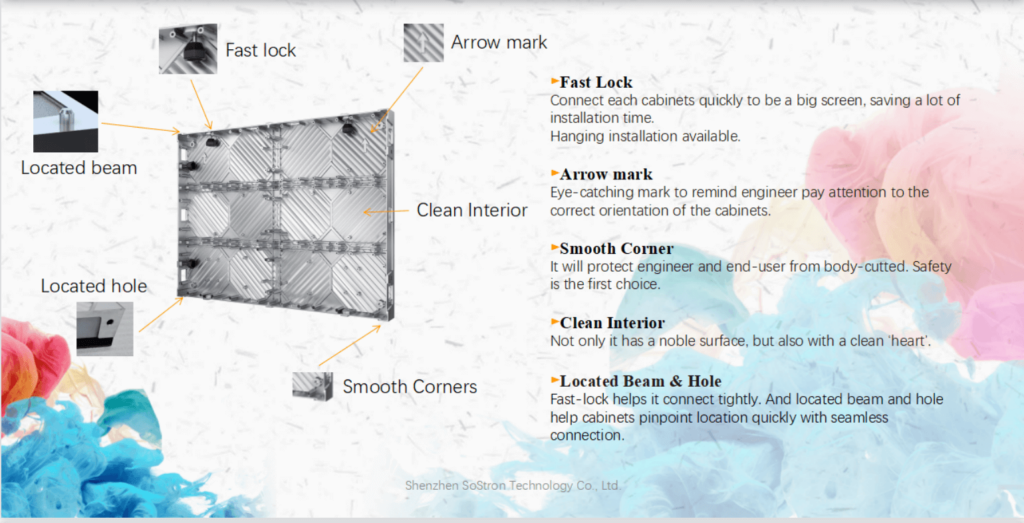
What are the advantages of XR LED screens?
Immersion: XR LED screens are able to provide a higher level of immersion and realism, which is very important for virtual reality (VR) and augmented reality (AR) applications. Users can feel more realistic environments and situations, making the XR experience more engaging.
Fast response time: XR LED screens have faster response times, which is crucial for reducing motion sickness and providing a smoother XR experience. They adapt to the user’s actions and interactions more quickly.
Wider color range: These screens are often capable of rendering a wider range of colors, making images and content look more vivid and realistic.
Adaptability: They can adapt to different shapes and sizes and can be used in a variety of XR applications, including virtual games, training simulations, medical applications, and more.
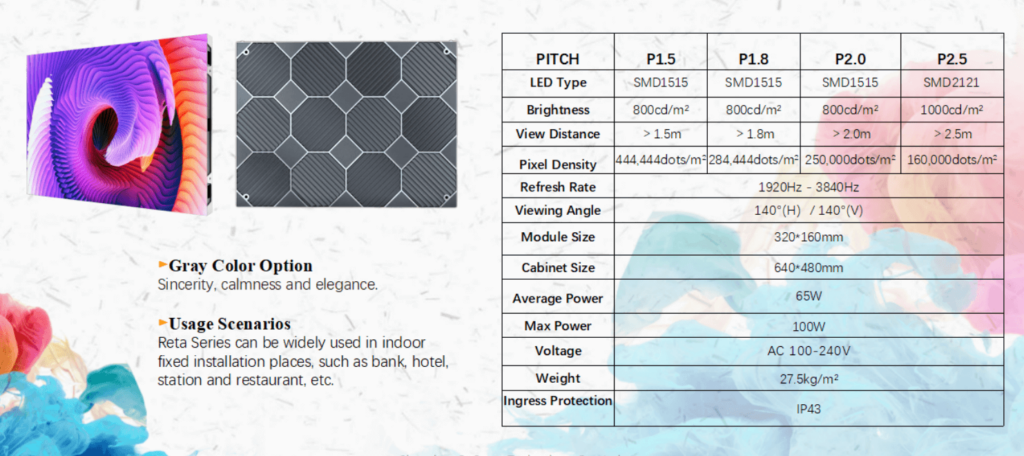
Our XR indoor LED screen products-Reta
Reta indoor LED display has impressive features, including high brightness, wide viewing angle and high flatness. Its maximum brightness is as high as 2000cd/㎡, ensuring a clear and vivid picture. Built-in handles and high-precision positioning make installation easier, while the die-cast aluminum plate design ensures a seamless, secure installation. Not only that, the display also supports hanging and fixed installation, making front-end maintenance more convenient and internal cleaning easier. Quick connections and an ultra-thin design (only 58mm depth) further increase its practicality. These features make Reta indoor LED displays ideal for both commercial and entertainment applications.
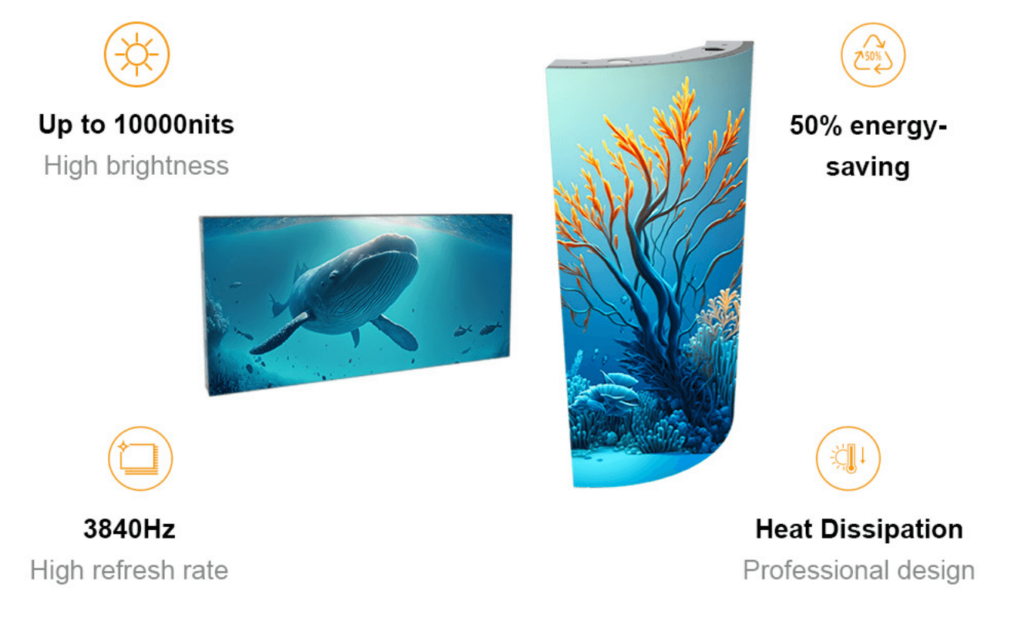
Our XR outdoor LED screen products-Ares
Ares Outdoor LED Display is an excellent product that stands out for its excellent features. Featuring an impressive 10,000 nits of brightness, ensuring clear visibility even in bright outdoor environments. Not only that, Ares also offers three color options of silver, white and black to meet different design and environmental needs. Each aluminum panel weighs only 23kg, is lightweight and easy to install, greatly reducing running costs and saving up to 50%. With an aluminum cabinet of 1 meter by 1 meter, no air conditioning is required for front and rear maintenance, further reducing maintenance costs. In addition, the aluminum panels of Ares outdoor LED displays are customizable, allowing you to personalize them according to your needs, and the plug-and-play feature makes it easy to operate. This versatile display will provide superior performance and convenience for your outdoor displays.

About Dylan Lian
Marketing Strategic Director at Sostron

